Thomas Francis Jr. Memorial Lecture
2024 Thomas Francis Jr. Memorial Lecture and Center for Social Epidemiology and Population Health 25th Anniversary
October 24, 2024
- 9:00AM | Poster Session and Breakfast (SPH I 1680: Cornely Community Room)
- 11:30AM | Alumni Panel
- 3:30PM | Thomas Francis Jr. Memorial Lecture Recording
- 5:00PM | Department Reception
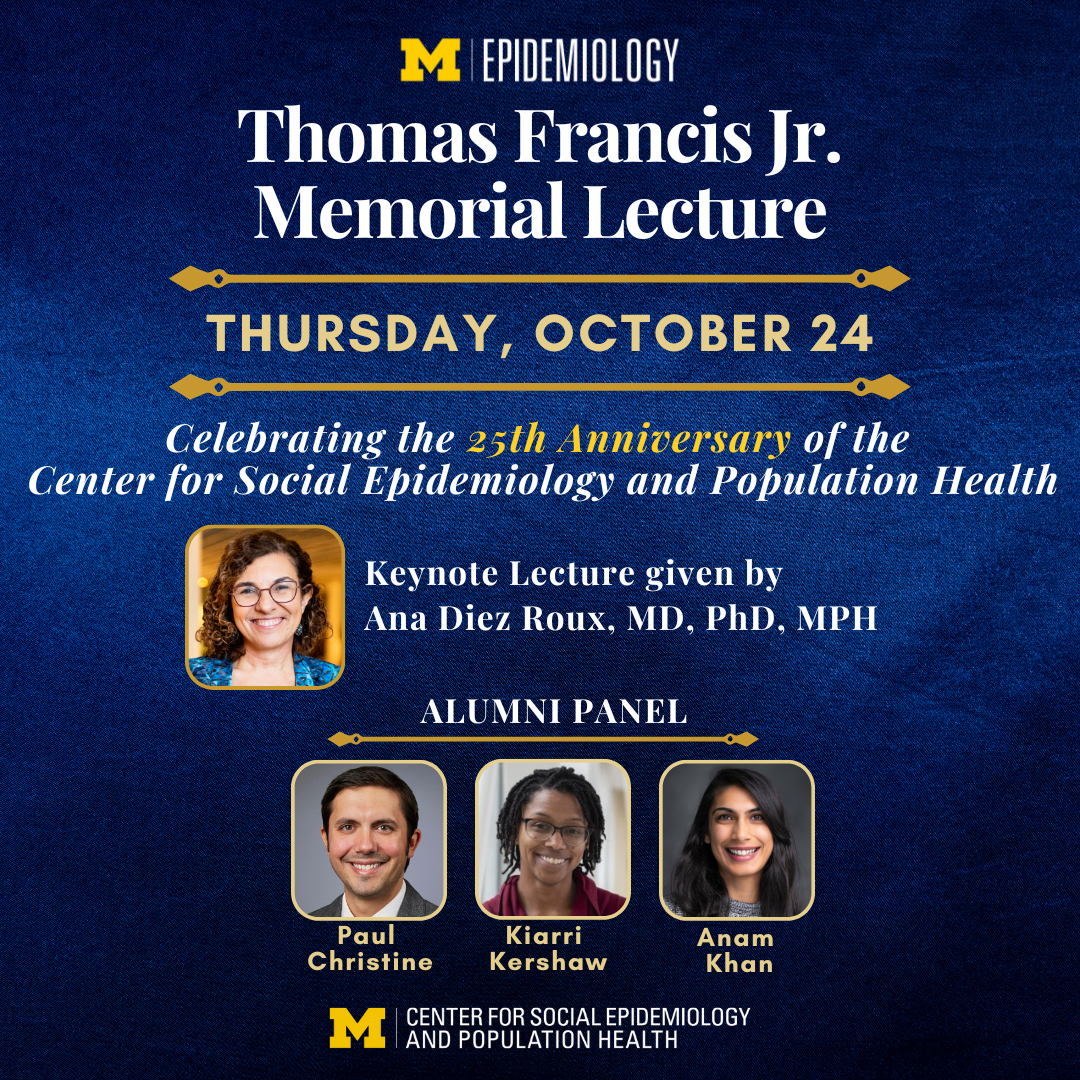
Thomas Francis Jr. Memorial Lecture
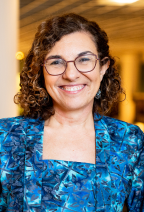 Ana V. Diez Roux, MD, PhD, MPH
Ana V. Diez Roux, MD, PhD, MPH
Distinguished University Professor of Epidemiology
Director of the Drexel Urban Health Collaborative
Dean Emerita Dornsife School of Public Health
Keynote: Twenty-five years of research on the social and environmental determinants of health
This lecture will review examples of epidemiologic research into the multifaceted ways in which social and environmental contexts impact health and health inequities. Using examples from work on neighborhoods and health, stress and health, the interactions of social and genetic factors, and the impacts of urban environments on health and health inequities, the talk will highlight aspects related to the formulation of research questions, the challenges of analysis and interpretation, and the implications of this work for public health and social action more broadly.
Ana V. Diez Roux, MD, PHD, MPH, is a Distinguished University Professor of Epidemiology and Director of the Drexel Urban Health Collaborative. Dr. Diez Roux was Dean of the Dornsife School of Public Health from 2014-2023.
Originally trained as a pediatrician in her native Buenos Aires, she completed public health training at the Johns Hopkins University School of Hygiene and Public Health. Before joining Drexel University, she served on the faculties of Columbia University and the University of Michigan, where she was Chair of the Department of Epidemiology and Director of the Center for Social Epidemiology and Population Health.
Dr. Diez Roux is internationally known for her research on the social determinants of population health and the study of how neighborhoods affect health. Her work on neighborhood health effects has been highly influential in the policy debate on population health and its determinants. Her research areas include social epidemiology and health disparities, environmental health effects, urban health, psychosocial factors, cardiovascular disease epidemiology, social environment-gene interactions, and the use of multilevel methods and complex systems approaches in population health. She has led large NIH and foundation funded research and training programs in the United States and in collaboration with various institutions in Latin America. She was Principal Investigator of the Wellcome Trust funded SALURBAL (Salud Urbana en América Latina) study (2017-2023). She is currently Multiple Principal Investigator for the Wellcome Trust funded SALURBAL Climate Project and PI of the NIH-funded Drexel Center on Climate Change and Urban Health (CCUH). She is also Multiple Principal Investigator of the NIH-funded Drexel FIRST initiative, a program focused on the creation of a culture of inclusive excellence via recruitment and career development support of 12 diverse early stage investigators and a set of strategies in support of institutional transformation at Drexel University.
Dr. Diez Roux has served on numerous editorial boards, review panels and advisory committees including most recently the Clean Air Scientific Advisory Committee (CASAC) of the Environmental Protection Agency (as Chair), the Board of Scientific Counselors (BSC) of the National Center for Health Statistics, the Committee on Health and Wellbeing in the Changing Urban Environment of the International Council for Science (ISCUS), and CDCs Community Preventive Services Taskforce. She is currently Co-Chair of the Roundtable on Population Health Improvement of the National Academies of Science, Engineering and Medicine.
She has received the Wade Hampton Frost Award for her contributions to public health from the American Public Health Association, the Award for Outstanding Contributions to Epidemiology from the American College of Epidemiology, and the Rothman Career Award from the Society for Epidemiologic Research. She is an elected member of the American Epidemiological Society and the Academy of Behavioral Medicine Research. She was elected to the National Academy of Medicine of the National Academy of Sciences in 2009. Dr. Diez Roux has been an active mentor of doctoral students, postdoctoral fellows and junior faculty from diverse backgrounds.
CSEPH Alumni Panel
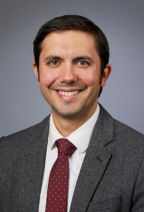 Paul Christine, MD, PhD
Paul Christine, MD, PhD
Assistant Professor of Internal Medicine, Anschutz Medical Campus, University of Colorado
Dr. Christine’s research broadly focuses on the effects of health and social policies on the availability and quality of care for individuals with substance use disorders. He is particularly passionate about researching and promoting policies that improve equity and outcomes for individuals in enrolled in Medicaid and other safety net programs.
 Kiarri Kershaw, PhD, MPH, MS
Kiarri Kershaw, PhD, MPH, MS
Professor, Feiberg School of Medicine, Northwestern University
Dr. Kiarri Kershaw is a social epidemiologist whose research focuses on understanding and addressing structural and social drivers of health and health inequities. She has extensive experience in the application of advanced geospatial and statistical methodologies using several large maternal and cardiovascular health cohort studies. Dr. Kershaw also has multiple NIH-funded studies that involve primary data collection using ecological momentary assessments to examine associations of the places people go, who they spend time with, and everyday stressful experiences with various health behaviors and outcomes. More recently, Dr. Kershaw has partnered with community organizations to build research capacity and support community-led research to combat health inequities.
 Anam Khan, PhD
Anam Khan, PhD
Research Pharmacoepidemiologist, RTI Health Solutions
Dr. Khan has over 7 years of experience in conducting epidemiology research studies in academia and consulting. Prior to joining RTI-HS, Dr. Khan served as a consultant to the pharmaceutical industry in the United States, where she supported clients by working on drug utilization and safety studies, as well as provided strategic advising. Dr. Khan has experience working on and leading large-scale projects with interdisciplinary teams of researchers, clinical and data partners, policy makers, and patients. She has worked on projects that span a variety of therapeutic and clinical areas including cardiovascular and metabolic disease, oncology, ophthalmology, gerontology, Alzheimer’s disease and dementia, and rare diseases.
CSEPH Poster Presenters
 Chen Chen, PhD
Chen Chen, PhD
Postdoctoral Researcher
"County-level association between structural inequalities and stroke prevalence among
US adults: an ecological study."
 Tsai-Chin Cho, MsC
Tsai-Chin Cho, MsC
Doctoral Candidate
"Memory Trajectories Before and After a Negative Wealth Shock, the United States Health
and Retirement Study, 1998-2020"
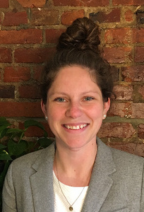
Darya (Dasha) Dokshina, MPH
Research Area Associate
"Exposure to structural racism-related state laws is associated with worse cardiovascular
health among US adults, BRFSS 2011 and 2013"
 Lily Johns, BA
Lily Johns, BA
Research Associate
"Psychosocial and Pandemic-Related Circumstances of Suicide Deaths in 2020: Evidence
from the National Violent Death Reporting System"
 Eskira Kahsay, MPH
Eskira Kahsay, MPH
Doctoral Student
"Racial Residential Segregation and Suicidal Behavior across the Lifecourse among
Black Americans"
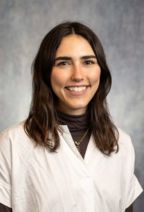 Abigail Kappelman, MA
Abigail Kappelman, MA
MD/PhD Candidate
"Black/White disparities in intergenerational individual and neighborhood trajectories
of maternal exposure and low birth weight in South Carolina"
 Amanda Malingagio, BS
Amanda Malingagio, BS
Research Assistant
"Temporal trends in acute ischemic stroke care in a community without an academic
medical center"
 Lauren Opsasnick Rogers, MS
Lauren Opsasnick Rogers, MS
Doctoral Student
"Depressive Symptoms Partially Mediate the Relationship between Psychosocial Factors
and Epigenetic Age Acceleration in a Multi-Racial/Ethnic Sample of Older Adults"
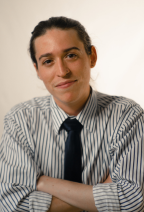 Alejandro Rodrigeuz-Putnam, MPH
Alejandro Rodrigeuz-Putnam, MPH
Research Area Specialist
"Preliminary Findings from the Diabetes, Distress and Disparities (3D) Study"

Postdoctoral Fellow
"Minority Health Social Vulnerability Index and Long COVID Illness among a Statewide,
Population-Based Cohort Study of Adults with Polymerase Chain Reaction-confirmed SARS-CoV-2"
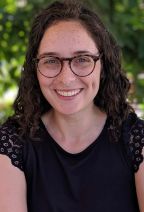 Hannah Steinberg, MPH
Hannah Steinberg, MPH
PhD Candidate
"Incarceration is a key driver of racial disparities in community-associated methicillin-resistant
Staphylococcus aureus infections in Cook County, IL"
 Nasya Tan, MPH
Nasya Tan, MPH
Doctoral Candidate
"Disparities in Hearing Loss among Older Adults: Health and Retirement Study, 2016-18"
 Luis Zavala Arcinega, MD, MS
Luis Zavala Arcinega, MD, MS
Doctoral Student
"The prospective associations of Long Covid with incident metabolic, cardiovascular,
and respiratory diseases: Results from a population-based cohort study in Michigan"
 Chuwen (Cullen) Zhong, MPH
Chuwen (Cullen) Zhong, MPH
Research Area Specialist Associate
"Network analysis on depressive symptoms, isolation, and functioning among older adults"
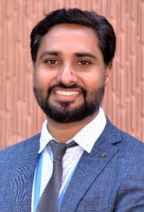 Muhammad Zia ul Haq, MD, MPH
Muhammad Zia ul Haq, MD, MPH
Doctoral Student
"Longitudinal Recovery after Intracerebral Hemorrhage: Insights from BASIC Study"
About Thomas Francis Jr.

Thomas Francis, Jr. — a man and a career, an influence and a personality. a human being and a person — still symbolizes all these for those who knew him as a man with a spirit that truly moved mountains.
His story in Ann Arbor began with the invitation from Henry F. Vaughan in 1941 to join the newly established School of Public Health at the University of Michigan and make it something different. This was the kind of challenge he loved and his first years must have been most exciting and rewarding, giving scope to his innate desire to build and to build strongly, an outstanding program of teaching and research.
His professional training and experience at Yale Medical School in the early 1920's had prepared him well for this enterprise. The circle of his intimate friends spread even larger as he moved to the Rockefeller Institute and New York University.
Once in Ann Arbor. he rapidly became a highly significant influence in the university community and ever more a national and international figure. Development of the university's virus laboratory was just the beginning: the department was soon concerned with all manner of infectious disease. In 1947. the Regents appointed him to one of the first Michigan distinguished professorships, naming him Henry Sewall University Professor of Epidemiology. His influence spread to the Medical School, and the Department of Pediatrics was fortunate to attract him to its faculty.
The Tecumseh Study was his creation and his vision of a comprehensive study of a whole city. The grand design incorporated the concept of a community laboratory which could take advantage of geography, history, and local culture to lay the basis for accumulated data from which it would be possible over a period of years to draw secure inferences on disease precursors.
Tecumseh and Dr. Francis' own contributions to the epidemiology of chronic disease and understanding of noninfectious factors were but further examples of his eminence as a true scientist, investigator, and innovator. All this is extensively documented. In recording only the Lasker Award and the Henry Russell Lectureship, injustice is done to dozens of other outstanding recognitions which tangibly testified to this eminence. Among three posthumous awards were a special plaque from the World Health Organization for distinguished contributions to the prevention and control of influenza, the Bristol Award for distinguished service from the Infectious Diseases Society of America, and the prestigious Jesse Stevenson Kovalenko Gold Medal for outstanding research in medical science from the National Academy of Sciences, of which he was a member for many years.
